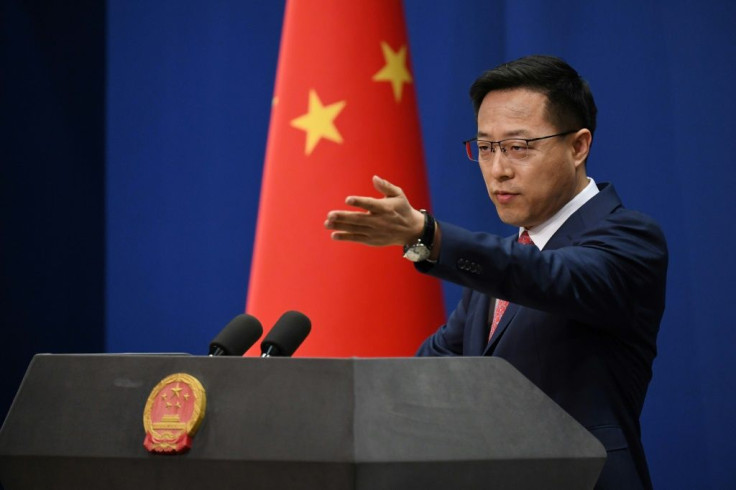China Slams EU's 'Confrontational Approach' After Investment Deal Blocked
China on Friday slammed the European Union's "confrontational approach" after MEPs voted to block a landmark investment deal over Beijing's tit-for-tat sanctions against EU lawmakers.
Foreign ministry spokesman Zhao Lijian said Beijing's sanctions were a "necessary and justified response" to previous EU measures against Chinese officials over human rights concerns in Xinjiang.
To the surprise of many, the European Union and China in late December approved a major investment pact, wrapping up seven years of painstaking negotiations thanks to a final push by Germany.
But the European Parliament voted overwhelmingly Thursday to refuse any consideration of the EU-China investment deal as long as Chinese sanctions against MEPs and scholars were in place.
Beijing says the sanctions were imposed to "safeguard (China's) interests".
"China has imposed sanctions on relevant institutions and personnel of the EU who spread Xinjiang-related lies and false information and who have seriously damaged China's sovereignty and interests," Zhao said at a regular press briefing.
He urged the EU to "immediately stop interfering in China's internal affairs, abandon its confrontational approach" and push EU-China relations "back to the right track of dialogue and cooperation".
Defenders of the pact see it as a much needed opening of China's economy to European companies, but it is set to face a difficult ratification process among the 27 member states and European Parliament.

The investment deal aims to open China's market and eliminate discriminatory laws and practices preventing European companies from competing on an equal footing, according to the European Commission.
EU foreign direct investment in China since 2000 -- excluding Britain -- amounted to $181 billion. The corresponding sum from China is $138 billion.
Ties between the EU and China soured suddenly in March after an angry exchange of sanctions over human rights concerns.
The EU sanctioned four Chinese officials over suspected human rights violations in China's far northwestern region of Xinjiang.
Beijing responded by imposing its own sanctions against European politicians, scholars and research groups.
Human rights groups and scholars say Beijing has rounded up an estimated one million Uyghurs and other minorities in Xinjiang into internment camps, which Beijing says is to eradicate Islamic extremism after a spate of inter-ethnic violence and attacks.
Adding to the pressure, about 50 human rights defenders from China who have gone into exile in Europe -- including the artist Ai Weiwei -- asked the EU on Thursday to suspend extradition treaties with Beijing.
In an open letter to EU leaders, they asked Brussels to freeze or revoke arrangements made by 10 EU member states, including France, Belgium and Spain.
These bilateral treaties "not only present a potential threat to our freedom of movement within the European Union, but to our freedom of association and freedom of expression, as Beijing may seek our extradition for statements we make in Europe", it said.
© Copyright AFP {{Year}}. All rights reserved.




















